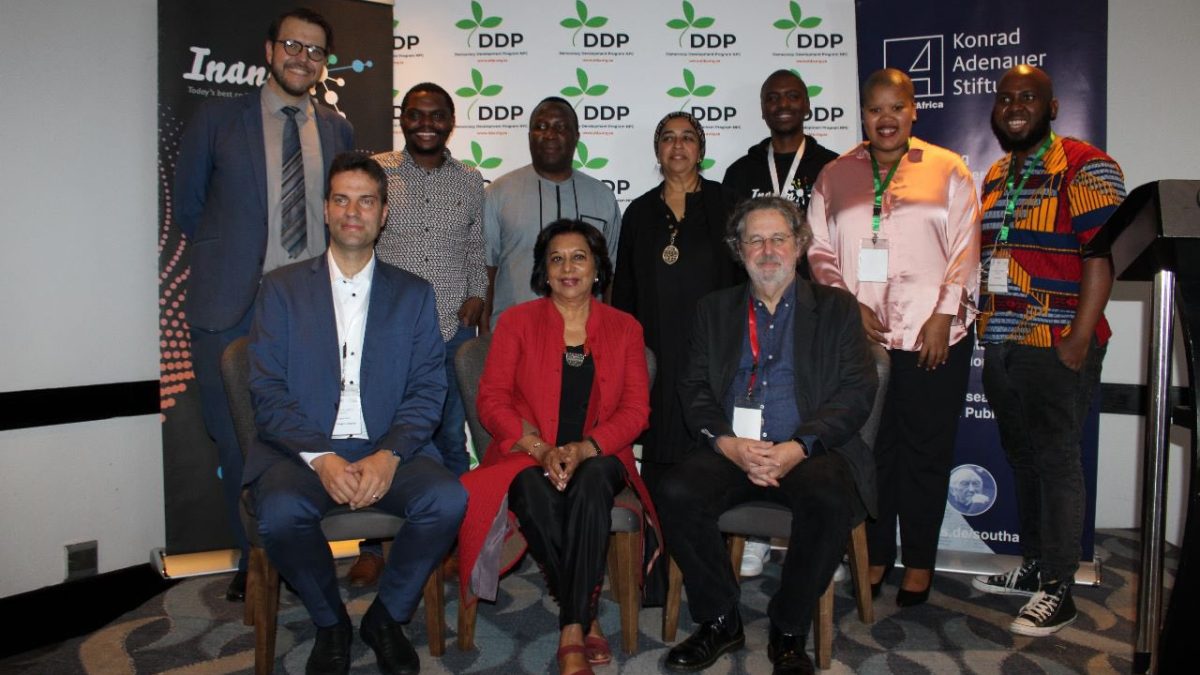DDP | Inanda FM 2nd Annual Media Summit

On 18 May 2023, Democracy Development Program hosted its 2nd Annual Media Summit with the theme The Role of Media at Times of Political Uncertainty. The Summit had a powerful lineup of speakers in the media industry. The speakers included Prof Anton Harber, Executive Director of Freexpression Campaign; Lukhona Mnguni, eNCA Talk Show Host; Nickolaus Bauer, DG Trust Campaign Manager and Ayesha Kajee, Practitioner and Activist at Africa Check. A special guest of honour, Gregor Jaecke from DDP’s partner, Konrad Adeneur Stiftung was also present offering his message of support.
Conversations surrounded the critical role media plays in educating citizens on many aspects of life including democracy, politics and nation building. In the past years, we have seen the media taking a stand in advocating for freedom of speech/ and (or) of the press to expose and report on all issues in communities, both rural and urban, and swelling the people’s perceptions towards holding government and other societal stakeholders to account. South Africa is one of the few countries in the world that allows for free independent media that is not dictated by the state. A freedom that has allowed South African citizens to use media as tool of information that informs their level of civic participation (or non-participation) in democracy. Thus, growing access to information (and misinformation) has had an effect on the level of trust people have towards media and democracy as a whole. The mainstream media is intended to deliver general interest news to broad audiences; however, these have been merged by niche sources that circulates to separate users. New media can relay information directly to individuals without the intervention of editorial or institutional gatekeepers, which are essential to legacy forms. Therefore, new media have introduced an increased level of instability and unpredictability into the political communication process.
The relationship between old media and new media is interdependent. Old media have incorporated new media into their reporting strategies. They distribute information across a range of old and new communication platforms. They rely on new media sources to meet the ever-increasing demand for content. Despite competition from new media, the audiences for old-style media remain strong, even if they are not as tough as in the past. Our speakers provided perspectives the influence of media on the political culture of South Africa. Furthermore, how to navigate and curb through the misinformation and disinformation of the digital era. It was examined how media literacy can be used as a tool for informed electoral decision making in South Africa and the conversations also unpacked the role of media in promoting ethical political leadership in South Africa.
Engagement from the audience included unpacking the problem of ‘half consumption’ of media due to pay walls and its influence of political education. Additionally, the growing distrust South Africans have towards media was assessed. We are at a time where media plays a crucial role, not just for the upcoming elections, but its through its presence of press freedom. The decline of democracy and rise of populist authoritarian regimes has caused a decrease in press freedom, thus, a shrinking of civic education space. Media as a watch dog and platform for public debate regarding issues that affect everyone, is a role that should not be diminished as it is crucial for a healthy democracy.
Radio Interviews here> https://drive.google.com/drive/folders/1EiV6Z7tIe2Qg8SBu7I-hywo62alxveqa?usp=share_link
